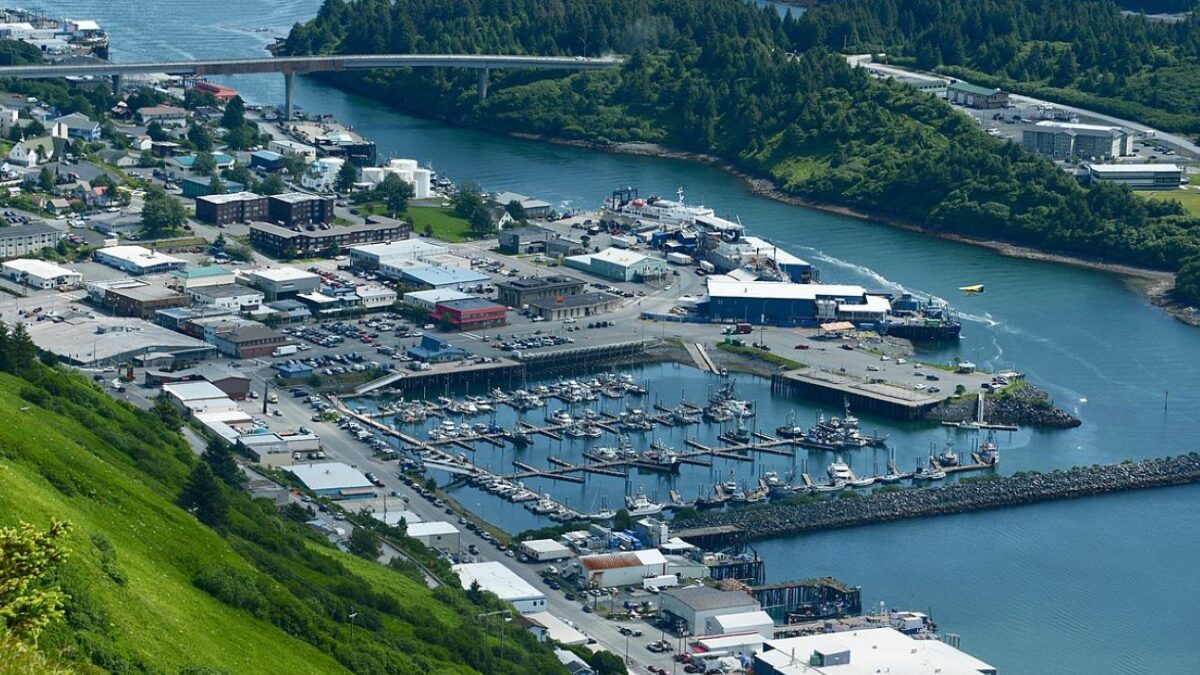Situated on an island just off Alaska’s southern coast, the city of Kodiak has a population of roughly 5,400 residents. Given its small size, it’s a fairly tight-knit community where individuals are familiar with their fellow residents.
Like many Alaska Republican voters, Kodiak resident Silver Prout was looking forward to caucusing in her city’s GOP presidential preference poll last week. But there was just one problem: The site designated as the location for the town’s Republican caucus was closed. Upon arriving at the harbormaster’s office — the intended polling site — she discovered the venue was shuttered.
While Silver didn’t know it at the time, the Kodiak Daily Mirror had published an article the day prior informing residents they wouldn’t be able to participate in the caucus because the local Republican Party reportedly couldn’t find enough volunteers to staff the poll. Party Chair Duncan Fields described the situation as “an internal party thing,” and told the outlet that the person “who was going to do it can’t do it, and [he hasn’t] been able to find anybody to step in.”
Because of this, Silver and other Kodiak caucusgoers were unable to vote in Alaska’s March 5 GOP presidential preference poll.
“This is the most consequential election of our lifetime and having a presidential caucus location closed with no answer other than, ‘We can’t staff it,’ shows the weaknesses in our election process,” Silver told The Federalist. The election misadministration in Kodiak “highlights the vulnerability of our democratic processes, when logistical challenges overshadow citizens exercising fundamental rights.”
Unanswered Questions
Fields’ claim that the local GOP couldn’t find anyone to staff its planned caucus site raised eyebrows among city residents — particularly Silver’s brother, Captain Prout.
A longtime Kodiak resident, Captain has served as a volunteer poll worker in elections before, including two previous November contests. Given his prior service, he has access to an online forum where requests for poll volunteers are regularly posted around election time.
Contrary to Fields’ claim, Captain told The Federalist he never received any phone calls, emails, or text messages about an opportunity to staff the Republican caucus site for the March 5 election. He also claimed nobody posted such a request in the aforementioned online forum and that a fellow volunteer poll worker told him she had not been contacted about an opportunity to staff the site, either.
“I was not contacted by anybody,” Captain said. “Before then, I had always gotten a time set up of whenever I was supposed to be at the polls and what time I was supposed to show up, and on Tuesday, I did not get any contact from anybody.”
Much like Silver, Captain didn’t find out the local GOP caucus site was closed until he went to vote on Tuesday afternoon. The local borough where he’s previously “gone and voted and helped volunteer” was also closed.
Other Kodiak residents have expressed their frustrations at the mishandling of last week’s canceled caucus. In the “Open Friends of Kodiak” Facebook group, one user by the name of George Thompson said the local party’s misadministration “screwed over every [R]epublican on Kodiak.”
“[I]t’s not like the date for Super Tuesday was a surprise,” Thompson wrote. “They had plenty of time to make it happen. Disenfranchising [us] is not ok.”
Another resident named Heidi Vedder-Mullen said she was “REALLY SURPRISED that no one even put up a sign for the cancelation.”
Fields did not respond to The Federalist’s request for comment on when he was first notified that the original poll worker would be unable to staff the polls for the March 5 GOP presidential contest or how long it was after learning such information that he began reaching out to other potential volunteers. He also did not respond when pressed on how many individuals he asked to staff the polling site before deciding to close it or what steps he and the Kodiak GOP plan to take to ensure a similar situation does not happen again.
Where’s the Accountability?
It remains unclear what — if any — form of accountability Kodiak Republican electors might receive for having their votes disenfranchised.
In Alaska, the Division of Elections does not conduct or oversee presidential primary elections, instead leaving the candidate selection process to political parties. This is because state laws “do not provide candidate access to the primary election ballot for the office of President and Vice-President,” according to the division’s website. Once party voters determine the winner — usually via caucus — “the delegates of each respective party go to their national party convention” and subsequently vote for their nominees.
When pressed on whether the Alaska Republican Party plans to investigate the disenfranchisement of Kodiak voters, state party Chair Ann Brown told The Federalist she finds the situation “disturbing” but didn’t indicate what definitive actions the Alaska GOP may take.
“We take this lapse seriously, and will work with our districts to ensure that Republican voters in Alaska are heard,” Brown said.








